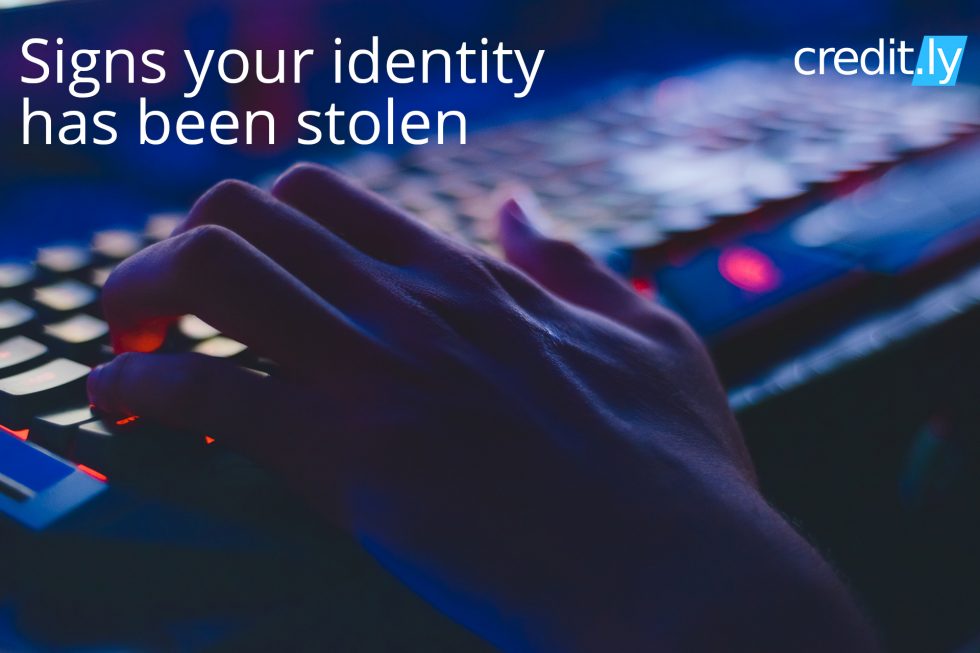We spend more time online than ever before. From Amazon to Netflix, Facebook and More. More and more of our lives are moving online, which means the chances of having your identity stolen increases. With all of the information out there, how do you even know if your ID has been compromised in the first place? What happens when it’s been stolen, and what can you do to reclaim your reputation?
Creditly explains the common identity theft issues, how they work, and what you can do to prevent them.
How Can I Spot a Stolen Identity?
Your persona, who you are, your identity is officially online. Simply put, identity theft occurs whenever someone else uses your personal information for their own gain. Many people think of identity theft as stealing a credit card or Social Security number. But there are quite a few ways that someone can use that info and your identity-at-large without your knowledge. Here are some examples:
As an example, a thief walks into any post office and grabs a change of address form. The form is marked as a temporary change, and your mail is forwarded to a new address for a few days. Any checks, bills, statements, or greeting cards now fall into the hands of the thief. You are left thinking, “hmm, no mail today” when in actuality a fraudster is mining your paperwork for sensitive details they can put to bad use.
Credit card fraud is h-u-g-e.Using devices that skim card numbers off the readers, thieves can grab your card and rack up charges. It seems that every year a story comes out about a major company suffering from a breach. Remember that mail that was forwarded? How many credit card applications might be in there?
Using a genuine Social Security number, a thief can file a phony tax return. You go to file your taxes, only to learn the IRS has already paid someone your refund. You now have to go through the process of filling out an Identity Theft Affidavit, among other things, in order to get your refund.
What Are the Odds of Having My Identity Stolen?
There are plenty of identity theft statistics out there suggesting the odds aren’t exactly in your favor. For instance, an estimated 15 million consumers fell victim to identity theft fraud in 2017, according to Javelin Strategy and Research’s annual Identity Fraud Study. And IBM reported that in 2014 alone, over 1 billion records, including personally identifiable information, were leaked. That means it’s critical to stay proactive when safeguarding your own identity.
How Do I Stop Identity Theft If I Become a Victim?
You can’t, unfortunately, be short of completely going off the grid. Given the digital age, there’s just too much information at there — there’s no way to guarantee yours won’t fall into the wrong hands. Still, there are steps you can take to minimize the odds of being compromised, including practising proper internet safety, limiting who you share your data with, particularly your Social Security number, and shredding documents before trashing them. You could also consider a credit freeze, which blocks lenders from pulling your credit and can prevent fraudulent credit accounts from being taken out in your name. (Note: Credit freezes will block you from applying for new credit, too. You’ll have to “thaw” your reports prior to filling out an application.) Beyond that, you need to keep an eye out for signs your identity has been stolen.
Is There An Easy Way to Tell if My Identity Has Been Stolen?
First and foremost, monitor your credit regularly. You can do so by viewing our free credit report snapshot, which is updated every 30 days. You can also get your full credit reports from each major credit bureau once a year by visiting AnnualCreditReport.com. Scan through your reports and see if there is something on there that you don’t recognize — new credit inquiries you didn’t make, mysterious addresses, new credit accounts you never opened. If there is, you can dispute that line item or account with the credit bureaus. (Not sure how? Here’s a complete guide to disputing errors on your credit report.) You’ll also want to contact the creditor and local authorities (more on this in a few.)
Keep in mind, too, if you’re truly worried about identity theft or have direct reason to believe your identity was compromised, you could also consider signing up for paid credit monitoring services.
Weird stuff on your credit report is a major sign your identity has been stolen, but there are other red flags to be on the lookout for. We’ll cover a few more below.
How Will I Know if Someone Is Using my Social Security Number?
Most of the time, you will discover that someone is using your Social Security number long after the damage has been done. It can happen in a few different ways.
You are living life, mostly debt-free, when creditors start to call. You know you’re caught up on all of your bills, but don’t ignore those calls! Pull a credit report right away to see what account they are talking about.
You go to file your taxes, and you receive a notice from the IRS that you have already filed. Someone has filed a return in your name and collected a refund that you deserve. Or your taxes are reported as incomplete, and you have unreported income. If this is the case, someone used your Social Security number when filling out their W-2.
You apply for a loan and you are declined because your credit score is too low. You have a long credit history, always pay on time and don’t use too much of your available credit, so what gives? Someone may have racked up debt in your name, and your score is taking a hit because of it.
What if your child starts receiving credit card applications in the mail? This should create a red flag in your mind. Credit card applications typically only arrive after a new credit file has been opened in your name. Note: If your child falls victim to identity theft, there are credit card monitoring services specifically designed to help.
What Do I Do? I’m a Victim of Identity Theft – Help!
You have been careful with your identity, but someone with evil intent has stolen it. You’re now one of the nearly 13 million Americans who are victims of identity fraud every year, and you need to know what to do.
- Contact the credit reporting agencies to put a fraud alert on your reports. This alert will last for 90 days. During that period, the credit bureaus will require lenders to take extra steps to confirm your identity. You can take it a step further and put that aforementioned credit freeze on your reports, which will prevent any new applications from going through.
- Contact the lender directly. If your credit card was stolen, call the card company and report the theft. If your debit card was stolen, call the bank.
- File an identity theft affidavit with the Federal Trade Commission. Call 1-877-ID THEFT and they can help walk you through the steps to make sure the identity theft report is filed correctly.
- File a police report. Identity theft is a crime, so you’ll want to report it. Before the identity theft affidavit can be completed, a police report must be filed.
- Contact the Social Security Administration if you believe that your SSN was stolen. Also, alert the IRS because the thief could be planning to steal your tax return as well.
Learn more at Creditly Resource Center.
[/et_pb_text][/et_pb_column][/et_pb_row][/et_pb_section]









